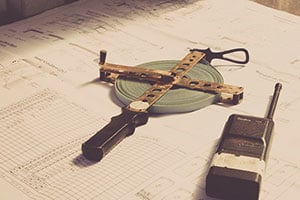
Understanding what is included in maintenance planning will enable your program to be successful.
Maintenance planning = doing things right. Identifying and addressing any possible issues ahead of time enables our craft to complete work quickly and correctly.
Maintenance planning identifies the what, why and the how. These three items allow the planner to identify most potential issues and provide the information, and materials to avoid them.
Working with various operations, I have often seen the line between planning & scheduling blurred.
What separates the successful operations is knowing the difference and ensuring that each is managed and executed differently. The successful sites also ensure the two distinct but critical functions are properly integrated.
Once an operation understands the difference, they can embark on a journey of improvement. So what does planning consist of?
Planning consists of four key functions, defining the-
- What- defines what work needs to be done, what materials, tools, equipment, and documentation will be required. Most of the issues the craft face are related to the lack of the above items. Clearly defining what the work is allows the planner to identify what specific materials will be and may be required to do the work. It also allows the planner to identify if the task can be completed with basic hand tools or if specialty tools may be required. Lastly, the planner is able to identify and provide any drawings, specifications or other documentation that may be helpful to the craft.
- Why- defines the reason we chose a particular approach. This may be why we are replacing a valve instead of a seat. It provides context to the individual doing the work, so they understand why they are doing that particular task. This does not have to be long and can be a simple sentence or two. Without this, the mechanic may choose to replace the seat, when in fact we have damaged 3 seats in the past month in the same valve.
- How- defines how the work should be completed. This is often a foggy area in Maintenance Planning, but ensuring that the work is repeatable is critical to the long-term reliability of the plant. We have skilled individuals doing the work, but if each one does it differently, we will not be able to address any startup failures. It also serves as a tool to pass knowledge along to the newer generation of craft.
- PDCA- Plan-Do-Check-Act is the process of completing a task and updating the plan to further improve the job in the future. This ensures that we arrive at the safest, most effective and efficient way to complete the work,
Knowing what a proper planning program consists of, where is your biggest gap in planning? What can you do to change it?
Remember, to find success, you must first solve the problem, then achieve the implementation of the solution, and finally sustain winning results.
I’m James Kovacevic
HP RELIABILITY
Solve, Achieve, Sustain
Just need a book to learn more about Maintenance Planning
Hi Thobo,
check out the article by Mike Sondalini “Review: The Maintenance Planning and Scheduling Handbook by Doc Palmer”
Book being reviewed is “Maintenance Planning and Scheduling Handbook 3/E” by Doc Palmer
Cheers,
Fred
Kindly a quick one…do you have sample excel workbook for PM. I look for one for guidance. Thanks to share if readily have a copy.
Hi please I need maintenance planning book to learn more about the course sir.